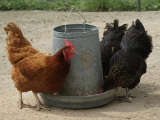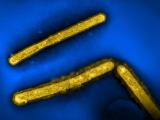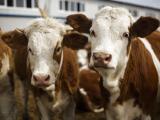Jul 10, 2008 (CIDRAP News) – A poultry vaccine designed to protect chickens in Hong Kong from H5 avian influenza has lost effectiveness over the past 7 years of use, an expert told the Chinese media recently.
Yuen Kwok-yung, who heads the microbiology department at the University of Hong Kong, told the South China Morning Post newspaper that the virus is shifting away from the Fujian strain that it was developed for, according to a Jul 8 Deutsche Presse-Argentur (DPA) report.
He told city officials that they must ban all live chickens from markets before the vaccine becomes completely ineffective, the DPA report said. Tests on birds in 2005 suggested that the vaccine generated only a quarter of the antibody response it did in 2001.
"It takes time for the manufacturers to produce new vaccines. Hong Kong is taking its own risk if it still has live chickens in the market," Yuen said.
In early June, animal health workers detected the virus in poultry feces at several market stalls. They did not say if the testing was done in response to sick or dead birds, and the source of the virus has not been determined.
Since then, officials have banned poultry from overnight stays in the market and have proposed a total ban on live poultry in Hong Kong markets. They have offered traders and farmers compensation packages in return for surrendering their sales licenses, but the offer has angered the poultry merchants, who have said the government's offer was too low, according to previous reports.
In other developments, officials in Egypt on Jul 7 filed a report with the World Organization for Animal Health (OIE) on several H5N1 outbreaks that have occurred in the country since February and formally declared that the disease is endemic in Egyptian poultry flocks. The report said Egypt will now file updates on its H5N1 outbreaks only every 6 months.
News about poultry outbreaks in Egypt has been sparse this year, though the country reported a handful of human cases in February, March, and April.
According to the latest OIE report, covering the months February though mid June, Egypt has had 19 new outbreaks since the last update. Seven of them occurred after May 1. The most recent one was a small outbreak in Luxor that affected backyard chickens, geese, and ducks.
About half of the most recent outbreaks occurred in backyard flocks; five occurred at live bird markets and four struck commercial farms, three of which housed layer chickens. Most of the outbreaks were along the Nile River delta.
See also:
Jun 30 CIDRAP News story "Hong Kong places curbs on market poultry"
Jul 7 OIE report on Egypt's H5N1 outbreaks



















